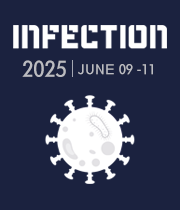Title : Atypical lemierre syndrome in an infant presenting as neck abscess: A rare case report
Abstract:
Lemierre syndrome, a rare life-threatening complication of anaerobic oropharyngeal infection initially described in 1936, has now emerged as a subject of interest in the era of antimicrobial resistance. This syndrome is characterized by primary infection originating from the ear or oropharyngeal location followed by sepsis and local thrombophlebitis. Classically implicated is the anaerobic organism Fusobacterium necrophorum but a similar illness maybe caused by Staphylococci, Peptostreptococcus and Streptococci – referred to as atypical Lemierre syndrome. MRSA has been emerging as a causative agent in adults but is rare in infants and children. The role of anticoagulation in Lemierre syndrome remains controversial but mortality has reduced significantly with timely initiation of antibiotics.
We report an unusual case of a four-month-old infant with atypical Lemierre syndrome caused by Methicillin resistant Staphylococcus aureus who was treated successfully with antibiotics and anticoagulation. Our patient presented with a cervical abscess that extended into the mediastinum and pleural space with septic thrombophlebitis of the right IJV, which is an unusual presentation.
Although Staphylococcus aureus is a common pathogen in infants, very few instances of Lemierre syndrome caused by MRSA in infants have been described. Literature review suggests that ours is one of the youngest cases of MRSA- associated Lemierre syndrome, with no reported cases from India to the best of our knowledge.
Atypical Lemierre syndrome due to MRSA is an unusual but emerging entity, which must be suspected and treated promptly.


